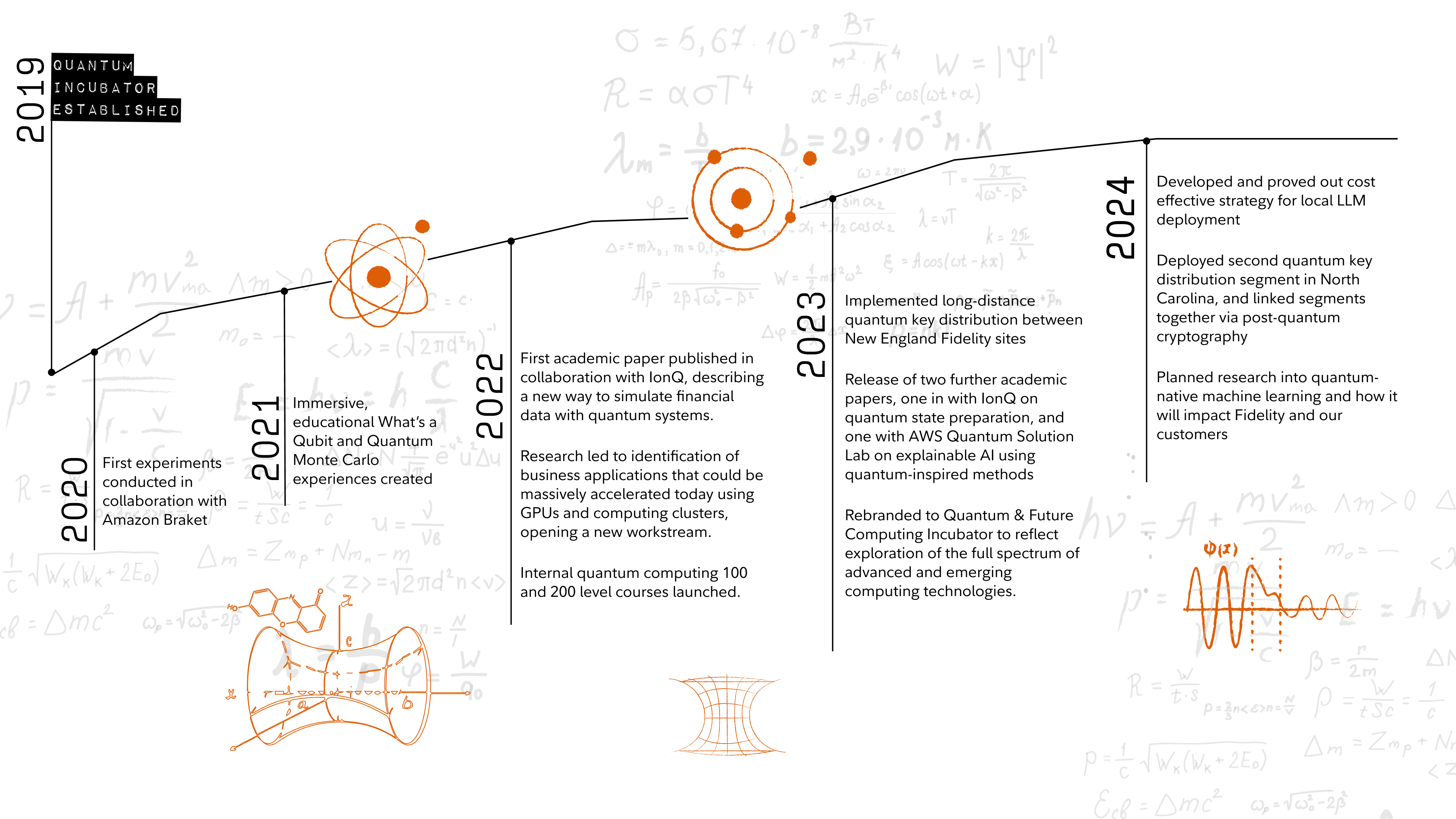Quantum and Future Computing
Quantum systems promise to change our world, from improved modeling and simulation to kickstarting the next generation of cybersecurity. At the same time, high performance computing and AI are already pushing the limits of what’s possible almost daily.
FCAT is devoted to ensuring that our customers benefit from the opportunities afforded by the full spectrum of advances in computing technologies while remaining protected from the threats they pose.

About the Incubator
Our team explores quantum and high-performance computing technologies to understand how they might impact Fidelity’s customers and our business.
While commercial benefits from quantum are probably 3-5 years away, there's a lot to prepare for – and security threats are appearing now. Our team works to identify mathematical problems and novel algorithms that can benefit from both quantum and sophisticated classical computers. We’re also developing and implementing post-quantum cybersecurity measures to mitigate both current and future threats. By planning and researching these systems now, we can help ensure that our customers will benefit and be kept safe in the future.
Projects & Observations



Quantum Journey (so far)


